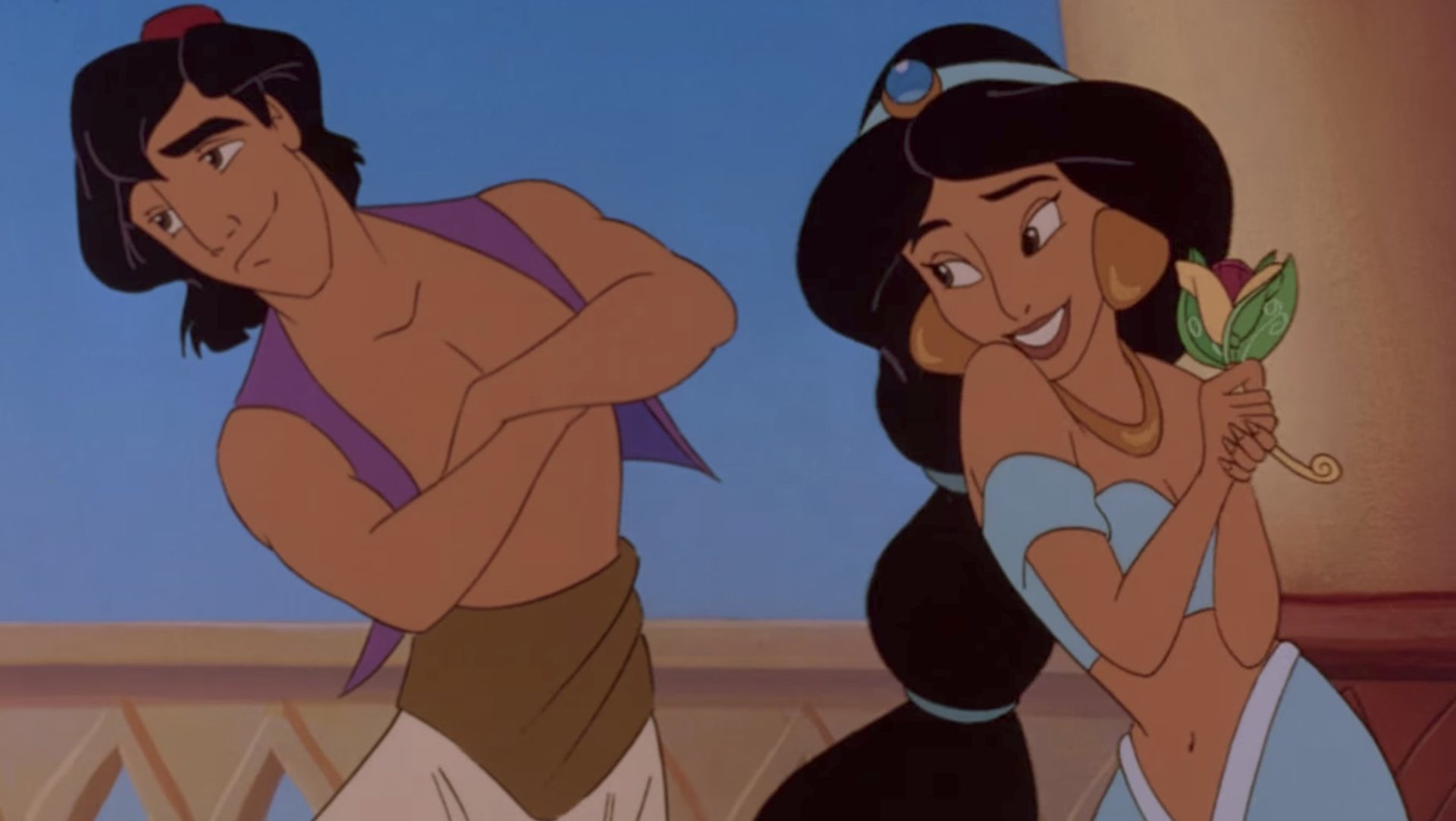The big “Aladdin” casting reveal doesn’t get Disney off the hook on race
Working the internet like it was something Uncle Walt had sketched out at his trademark drawing table, Disney Studios unveiled its big live-action Aladdin casting announcement at the company’s biennial D23 Expo this weekend.


Working the internet like it was something Uncle Walt had sketched out at his trademark drawing table, Disney Studios unveiled its big live-action Aladdin casting announcement at the company’s biennial D23 Expo this weekend.
Canadian actor Mena Massoud, who has a few TV credits, will play the title character, Disney said July 15 in Anaheim, California. As had been rumored, the more widely known English actress Naomi Scott will portray his love Princess Jasmine. It was already pretty much out that American action star Will Smith will be the Genie, a role voiced brilliantly by the late Robin Williams in the 1992 animated blockbuster.
Still, nothing is simple when it comes to Aladdin. The casting of Scott especially made some fans upset on the racial and ethnic grounds that have featured within a long-simmering debate. A magic lantern to wish away all the resultant noise might come in handy for the studio—if Disney really minded it at all.
Scott’s mother is of Gujarati Indian descent and her father is British. Massoud is of Egyptian descent. Just days before D23, the studio had made it known via The Hollywood Reporter that it was encountering a trouble finding the right cast members for the starring roles. Where oh where could British director Guy Ritchie—said to have embarked on a months-long global search—find performers of Middle Eastern or Indian descent who can sing and act well enough?
Many voices in the digitally connected world advised that Bollywood might be among the obvious places to start. Not so fast, said others who wanted more Arab representation. The root of the problem: It’s hard to say exactly where the Aladdin of Disney’s making is set—the Arab world, the Indian subcontinent, or someplace in between. One could say that Disney split the difference in casting its male and female leads. Making some fans unhappy, and leaving many confused. The vitriol centered on the selection of Scott also drew defenders to her side.
When word came of Ritchie’s supposedly culturally aware casting difficulties, Fatima Zehra wrote in Kajal Magazine—in a post republished by Quartz India under the headline “Just because Aladdin is casting a brown lead doesn’t mean it’s not racist”—that Disney missed the point:
Aladdin strung together a few generalizations about North Africans, south-east and south Asians, and blurred out our distinctions. The movie takes place in the fake city of Agrabah—combining together “Agra,” the historical city in northern India, with “Bah” to make it sound more Middle Eastern, I guess. The lack of specificity and care that went into the story is also the reason it doesn’t matter who the lead of this movie is, as long as he’s vaguely brown and maybe Muslim.
The animated story putatively was based on a tale spun in One Thousand and One Nights by the fictional storyteller Scheherazade. Original Arabic collections didn’t include the story of Aladdin and his lamp, which was likely added by a French translator in an 18th-century edition. Some speculate that the character has origins in China.
Straight-out cultural appropriation can be troubling and complicated enough. In the globe-spanning realm of big American studio productions, the misguided mashup that is Aladdin had a seemingly incongruous effect—the creation of a multinational class of fervent young fans. As Zehra put it: “Aladdin, a movie that is super-orientalist, was paradoxically important for south Asian, Arab, and Muslim kids because it’s one of the few movies that addresses the fact that our cultures existed, by not specifically identifying them.”
That audience backstory—illustrating the singular symbolic appeal of Aladdin to disparate groups—guaranteed a torrent of unforgiving reactions to any casting news.
As the world awaits the news of who will play the other main roles—the villainous Jafar, his sidekick Iago, and the kind Sultan—one might look at Twitter and think Disney stumbled once again on the identity politics of Aladdin. Yet the Mouse might say, “What me, worry?” Eyes widened by what’s been unfurled on the internet also will be watching Aladdin unfold on much bigger screens.